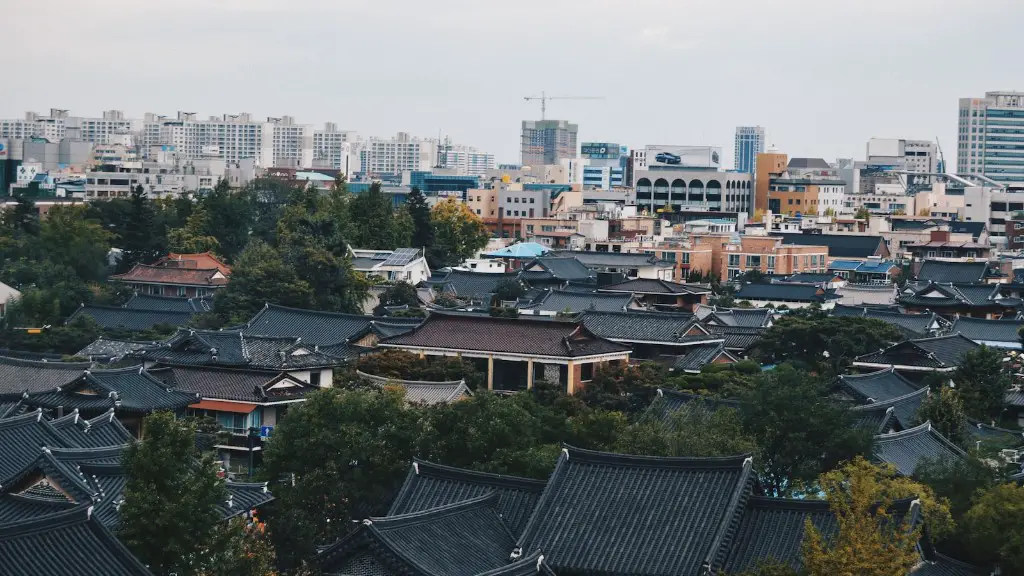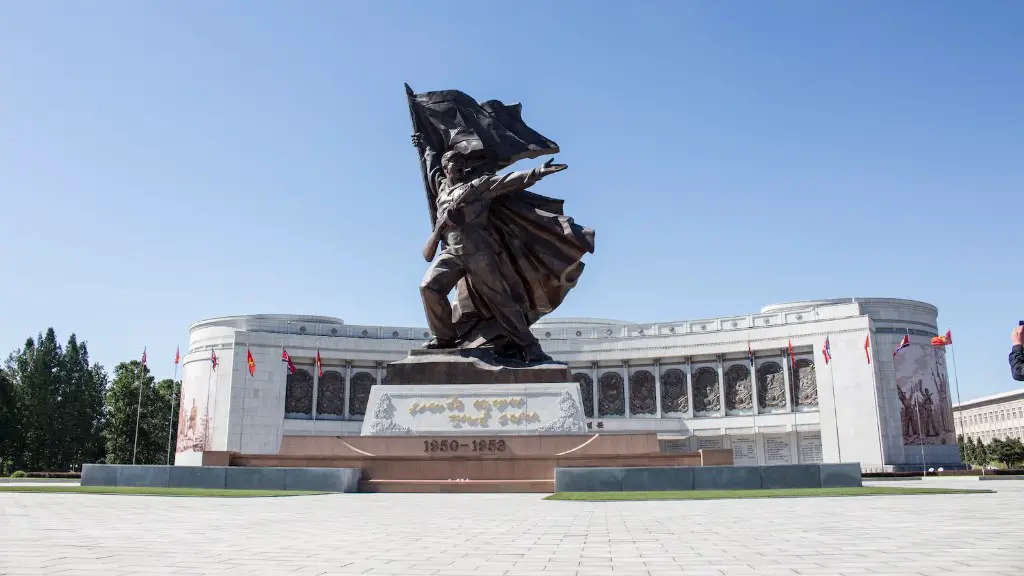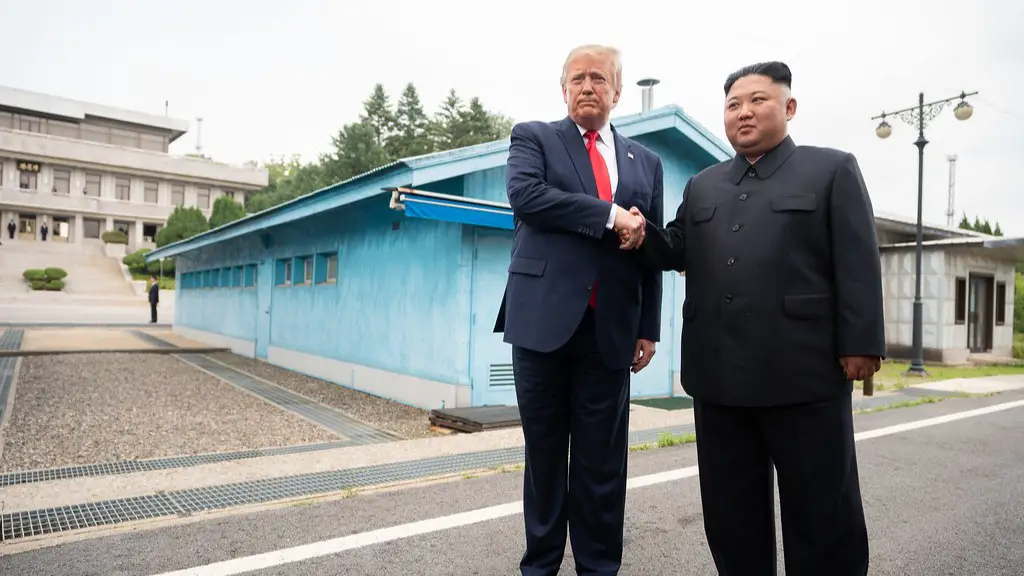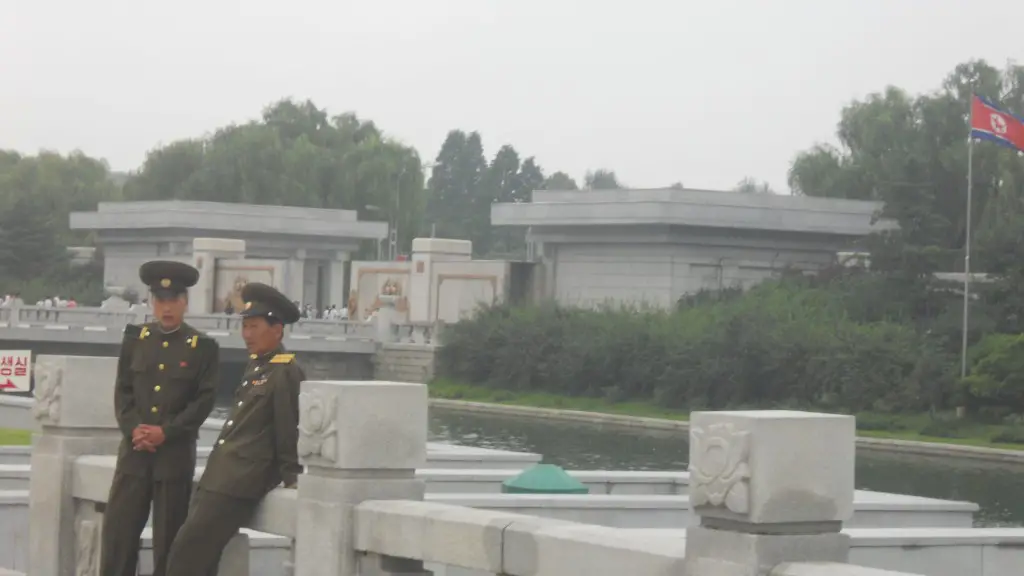What does North Korea say about America? In the geopolitical context, North Korea is always an interesting topic. North Korea, being the last vestige of Stalinist communism, is often seen as a thorn in America’s side. For years, the U.S. has been monitoring North Korean activities and responding with pressure tactics, both overt and covert.
The DPRK has accused America of a host of misdeeds ranging from economic blockade to military aggression. Through state-run media outlets, the North Korean government has waved its finger at the U.S., accusing it of human rights abuses, repression of its own citizens and interference in other countries’ internal affairs.
It is difficult for outsiders to accurately gauge the North Korean people’s opinion of America. Outside media and information access is severely restricted and public opinion polling is nonexistent. That said, U.S. scholars, policy makers and human rights activists have pieced together a picture of how and why North Koreans view America with distrust and resentment.
For years, U.S. policy makers have imposed economic sanctions on North Korea in an effort to pressure the North Korean government to dismantle its nuclear weapons program and open up to the rest of the world. This policy has been widely criticized for causing severe hardship to North Korea’s long-suffering people.
The U.S. has also been accused of bullying North Korea through its military presence in the region. North Korea is acutely aware that the U.S. has a formidable military presence in South Korea, Japan and other neighboring countries. North Korea has repeatedly warned that any military actions launched against it would be met with a “merciless counterattack”. Clearly, North Korea sees the U.S. as a threat.
In recent years, the U.S. has reached out to North Korea to try and thaw relations, but these efforts have not been successful. There is still a lack of mutual understanding and a great deal of distrust between the two countries. Until both sides can come to some sort of understanding, North Korea’s view of America is unlikely to change.
History of Confrontation
The history between North Korea and the United States is rife with tensions, which have only grown over the decades. Dating back to the Korean War, North Korea has long viewed the US with an attitude of hostility and suspicion. In North Korea’s eyes, the US seeks to maintain political, economic, and military domination over the Korean peninsula and the region at large.
North Korea claims that the US has consistently worked to sabotage attempts by North Korea to pursue nuclear weapon capabilities, with the US imposing UN sanctions and other measures to limit the country’s finances. This has at times been accompanied by public criticism of the country’s human rights concerns, which North Korea views as hypocritical and ultimately unproductive in resolving the situation.
The US has a well-documented history of sponsoring military invasion and occupation in other countries, which has only entrenched North Korea’s view that America lacks respect for international law. North Korea has also accused the US of using false pretenses as a rationale to illegally enter into countries such as Iraq and Afghanistan, and of using sanctions as a form of political revenge against regimes that it does not approve of.
On top of all this, North Korea believes that the US has a lucrative history of financial exploitation of country economies — particularly those in the developing world — for its own interests. In North Korea’s view, the US exploits weaker nations to boost its own power.
Overall, the US is viewed by the North Korean regime as an opponent that is attempting to undermine the country’s sovereignty and by extension, its national security.
America’s Perception of North Korea
Just as North Korea has long seen the US as an adversary, the US is equally mistrustful of the hermit kingdom. Since the Korean War, the US has seen North Korea as a dangerous state which is seeking international destabilisation.
The US currently regards North Korea as one of the world’s most repressive regimes, with the CIA World Factbook rating the nation as “not free”, and condemning the state’s human rights record as “among the worst in the world”.
The US views the North Korean regime as being incredibly restrictive and oppressive, while being incredibly hostile in relation to its neighbouring countries. U.S. officials have noted North Korea’s export of nuclear and ballistic missile technology, which the US views as a direct threat. The US also notes North Korea’s lack of international co-operation and their unwillingness to meet US demands.
The US views North Korea as chiefly responsible for the tense situation on the peninsula, accusing North Korea of flaunting international rules of engagement and frustrating diplomatic efforts. North Korea, in response, has blamed the US for its “hostile policy,” accusing the US of political interference and attempting to maintain a “stranglehold” on the nation.
America’s perception of North Korea remains largely pessimistic, though the US has expressed interest in engaging in dialogue with the hermit kingdom. However, due to the deep-seated mistrust of North Korea, the US has continued to employ diplomatic and economic pressure tactics in hope of bringing about change.
A complex relationship
The US and North Korea have long been engaged in an intricate relationship defined by volatility and mistrust. North Korea’s government sees the US as an enemy that is attempting to undermine the nation’s security and stability, while the US is equally distrustful of North Korea’s regime.
The relationship between the two nations has been historically tense, with North Korea accusing the US of exploitation and violation of international law, while the US has accused North Korea of destabilising the region with its nuclear and ballistic missile exports.
The two countries have engaged in negotiations over the years, with the US looking to find a path of compromise and reconciliation with the hermit kingdom. However, negotiations have ultimately been unsuccessful with North Korea’s attitude remaining largely hostile to US demands and interests .
Overall, North Korea and America’s relationship is complex, mired by a history of mistrust and political discord. Any resolution to the impasse between the countries appears to be far off, with no sign of a breakthrough in the foreseeable future.
America Lifting Sanctions
Despite the tense relationship, America has recently appeared ready to pursue a different path in regards to North Korea. The Trump administration has recently taken steps to reduce economic sanctions that have been imposed on North Korea, in order to foster a diplomatic breakthrough.
The lifting of sanctions comes as part of an effort by the Trump administration to bring North Korea to the table and begin negotiations on nuclear non-proliferation and broader international cooperation. The US has made clear that its new approach aims to bring economic opportunity to North Korea while at the same time pushing its government to end its nuclear ambitions.
This new approach has the potential to lead to a more amicable relationship between the two nations over the long-term. Already, rumors have circulated of Kim Jong Un and Donald Trump engaging in a second Summit, with talks of the potential for a friendship between North Korea and the US.
It remains to be seen whether the US’s actions will actually lead to a breakthrough in the relationship between America and North Korea, though the signals are certainly there for potential co-operation in the future.
International Diplomacy
In recent years, world leaders have become increasingly aware of North Korea’s nuclear capabilities and the threats that they pose to international security. As such, the international community has taken action to try and peacefully resolve the situation.
Various international powers such as China, Japan, South Korea and Russia have all condemned North Korea’s pursuit of nuclear weapons and have put pressure on the regime to return to the diplomatic table.
These nations have also sought to decrease tensions between the US and North Korea by encouraging talks and offering support and resources to facilitate dialogue and progress. For instance, Russia has consistently tried to encourage talks between the two nuclear powers, though with limited success.
On top of this, international organisations such as the United Nations have increased their involvement in the North Korean situation. The UN has recently become more active in helping participate in talks between the US and North Korea, and have proposed a variety of partnership initiatives that may help avert further conflict.
Ultimately, it is up to the US and North Korea to come to a diplomatic solution that is beneficial to both sides. Although the efforts of world leaders and international organisations are essential, the only way for a meaningful breakthrough to be made is for the two countries to agree on an acceptable resolution.





